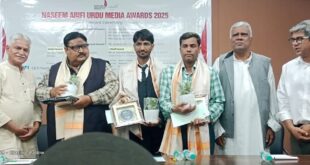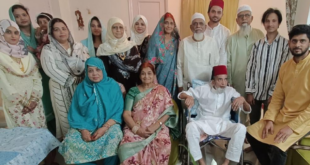Leading scientists and infertility experts are now researching whether infertility treatment can cause cancer in women. A study undertaken by Hyderabad-based Maternal Health and Research Institute (MHRI) and funded by the Indian Council of Medical Research (ICMR) aims to explore the relationship between assisted reproduction treatment and ovarian cancer. The research team led by veteran fertility expert Dr Roya Rozati would examine whether women undergoing infertility treatment are more prone to ovarian cancer. Presently, there are theories but no study that establishes the connection scientifically”, said MHRI Director Dr Roya Rozati.
“The attention this possible relationship has received in the last 20 years suggests a link between onset of ovarian cancer and infertility treatment in some women, although the study will establish the actual relationship”, she said. “We want to provide scientific evidence whether it really leads to cancer or not.”
This is one of the four projects undertaken by MHRI. The Research institute is also studying complex scientific matters like the impact of endometriosis and the role of microRNA, how embryo quality affects the outcome of infertility treatment and the evaluation of PCOS among women. Endometriosis is a disease affecting women of reproductive age leading to abnormal tissue growth outside the uterus.
Addressing the Scientific Advisory Committee, noted ICMR scientist and health advisor to the Government Dr R.S. Sharma said “developing a non-invasive procedure to treat endometriosis would be a significant milestone and help doctors better treat people, including in the rural pockets at an affordable cost.” He said “the burden of the affected women must come down, and science can make it happen.”
According to Dr Roya Rozati, scientific data reveals that nearly 6.5-10% of young girls in India are affected by PCOD. The condition has severe medical and psychological implications on affected women and girls.“
One third of the women have endometriosis problems. At MHRI, we are trying to bring down the burden of cost while also scientifically understanding the prevalence of the problem”, said Dr Rozati.

“The age for the onset of endometriosis has also come down over the years. More and younger women who were not prone to these diseases are now being diagnosed with endometriosis”, she added.
Founded in 1994, MHRI is also working to build a national database that documents the prevalence of PCOS in India. The project is part of a multicentre study across India. 10 States including Telangana are part of the ICMR task force study that started in 2017 and has nearly completed phase one. In Hyderabad, MHRI and Osmania Medical College are the designated centres for this study.
Indian Medical Association Hyderabad branch President Dr Sai Ram Chinthamadaka, scientist Dr P Suresh, MHRI Chairman Dr Ayapati Dharmarakshak, Dr Aleem Ahmed Khan, Dr Sarosh Ahmed were also present while research scholars Dr Humaira Minhaj, Dr Sumaiya Fatima and Dr Wajeeda Tabassum enlightened the scientific committee with project presentations.
 Gawah (The Witness) – Hyderabad India Fearless By Birth, Pristine by Choice – First National Urdu Weekly From South India – Latest News, Breaking News, Special Stories, Interviews, Islamic, World, India, National News
Gawah (The Witness) – Hyderabad India Fearless By Birth, Pristine by Choice – First National Urdu Weekly From South India – Latest News, Breaking News, Special Stories, Interviews, Islamic, World, India, National News




